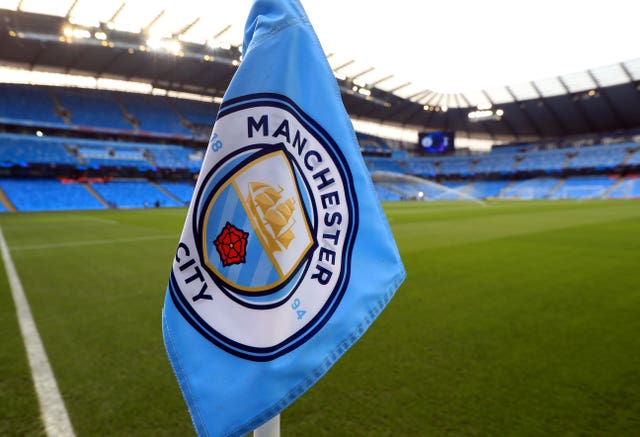Barry Bennell was integral to Manchester City youth set-up, damages trial told
Eight men in their 40s and 50s have made High Court damages claims against Manchester City.

Eight men who say they were abused by a former football coach who was jailed for sex offences against boys have begun a High Court damages fight after suing Manchester City.
The men, now in their 40s and 50s, made damages claims and say Barry Bennell abused them when they were playing youth football in north-west England more than 30 years ago.
They say Bennell, now 67, abused them while he was a Manchester City scout and want damages from the club.
The club disputes claims made by the men.

A barrister representing the men told the judge the boys played for Manchester City feeder or nursery teams coached by Bennell.
James Counsell QC said the club had more than “vestigial control” over Bennell and the teams he was coaching.
“This is a claim where Manchester City had a direct interest and direct control of the feeder teams that it ran, and which Bennell coached on its behalf,” he said.
“Bennell was integral to the Manchester City youth set-up, an important part of a recruitment process.”
Mr Justice Johnson was told that Bennell, who worked as a coach at Crewe Alexandra, is serving a 34-year prison sentence after being convicted of sexual offences against boys on five separate occasions – four in the UK and one in the US.
Lawyers say the trial is expected to last several weeks.
Bennell is expected to give evidence by videolink from prison on December 6
Detail of the case emerged at preliminary hearings earlier this year.

Lawyers say some are also claiming damages for the loss of a chance to pursue a career as a footballer.
Judges have heard that a question at the centre of the case is whether Manchester City are “vicariously liable” for Bennell’s actions.
The men say he worked as a scout for City and ran various youth feeder teams, mainly under-14s, on the club’s behalf and for its benefit.
They included teams known as White Knowl, New Mills Juniors, North West Derbyshire Select, Glossop Juniors, Adswood Amateurs, Pegasus and Midas.
The men argue that the relationship between Bennell and the club was “one of employment or one akin to employment”.
Mr Counsell said six of the men are claiming loss of earnings. The club is disputing the loss of earnings claim.
“In respect of loss of football earnings, there can, of course, be no certainty that any of the claimants would have gone on to have a successful football career, nor can it be predicted with certainty at what level they would have played,” he said in a written case outline.
“Nonetheless, these were young boys who had been singled out for their excellence and were making their way, with distinction, towards a future as a professional footballer.
“The abuse inflicted on each of these claimants had a life-changing impact on each of them.
“It was inflicted in circumstances where Bennell was operating as a coach and scout within Manchester City’s youth operations for the commercial benefit of the club.
“As a matter of law, Manchester City is vicariously liable for the acts and abuse perpetrated by Bennell.”
The club denies Bennell was an employee or in a relationship “akin to employment” at “the material times” and denies being vicariously liable.
Judges have ruled that the men making claims cannot be identified in media reports of the case.
Michael Kent QC, leading Manchester City’s legal team, disputed the case put by the eight men.
“The defendant’s case in summary is that Bennell was not even a ‘local scout’ for Manchester City FC from about 1978/79,” Mr Kent told the judge in a written argument.
“He also decided to set up and run his own junior football teams in Derbyshire from around 1981 until 1985, but they had no connection whatsoever with Manchester City CFC.
“However, in view of his previous contacts with the club he was able to and did for his own benefit play up his connections and imply that anyone playing for one of his junior teams had a good chance of being offered a trial at the club if they performed well.
“The defendant’s case therefore is straightforward: Bennell was neither an employee nor acting in a role akin to employment at any time (whether during the period with which these claims are concerned or before).”





